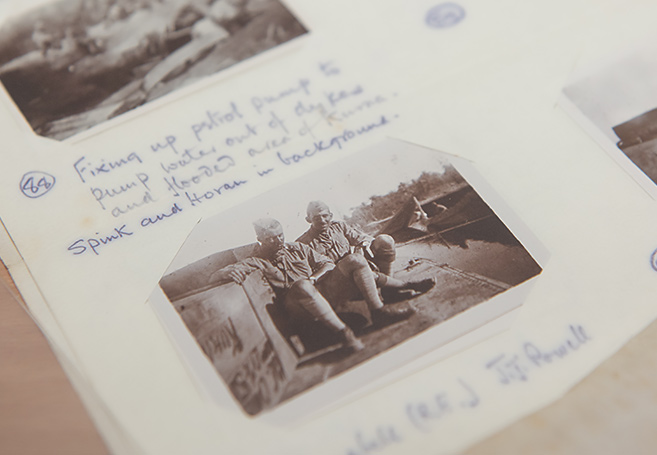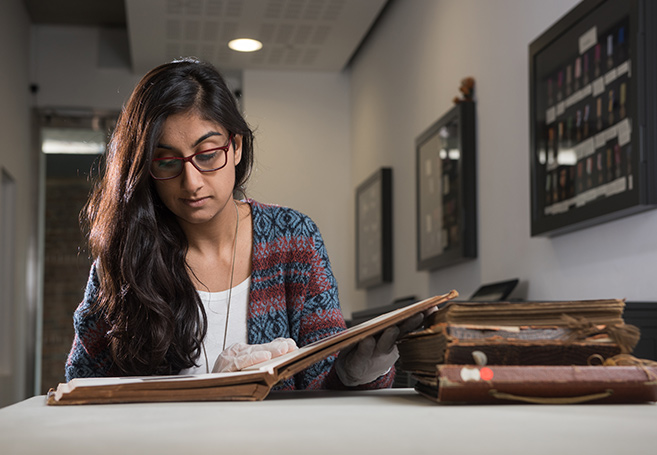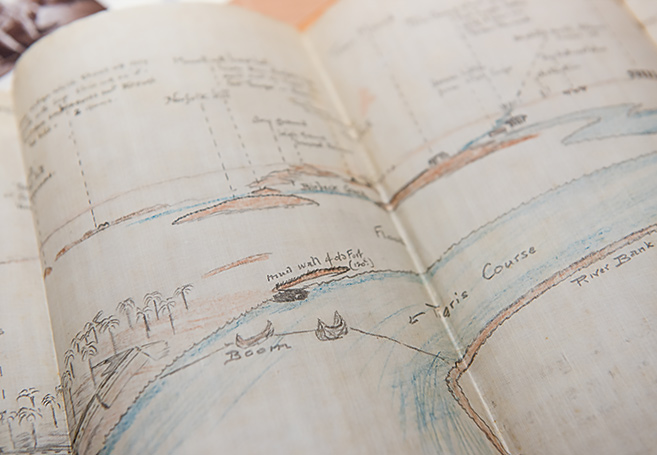TORCH (The Oxford Research Centre in the Humanities) stimulates research that transcends both disciplinary and institutional boundaries. Through the lens of one project, we explore how the centre's drive to promote collaboration, foster public engagement and support academics at all stages of their careers, is helping to spark ideas that change our world.
Approximately 1.5 million Indian soldiers served in the First World War, of which 74,187 are thought to have lost their lives. But although the contributions made by the British Indian Army were significant, they have largely been forgotten – their stories long omitted from traditional historical narratives, or relegated to the footnotes.

'People don't want to remember the horrific parts of the war, but the fact is that British and Indian soldiers, particularly the lowest orders, suffered quite badly together,' explains Dr Priya Atwal, 2017–18 Knowledge Exchange Fellow for TORCH. Last year, Dr Atwal embarked on a six-month research project to highlight the overlapping, but largely overlooked, experiences of men from India and Oxfordshire in fighting for the British Indian Army in Mesopotamia.
Accompanied by a team of intergenerational volunteers from the local British-Asian community, Dr Atwal gained access to previously unstudied military heritage collections held at the Soldiers of Oxfordshire Museum (SOFO) in Woodstock. She trained the volunteers in archival research and worked alongside them to study and interpret their findings. The stories they uncovered together – illuminating and at times deeply affecting snapshots of life, love and loss on the Eastern Front – were later told through a travelling exhibition.
'It didn't take us long to see the project's full potential,' reflects Dr Atwal. Inspired by her findings and keen to continue her collaboration with the museum beyond the bounds of the initial project, she successfully applied for a one-year TORCH Knowledge Exchange Fellowship. The post brought with it an award of £10,000, enabling Dr Atwal to extend the scope of her research, as well as to significantly enhance the outreach activity being undertaken around the exhibition.

'The narrative that SOFO was telling and what we found in the archive material was very different,' says Dr Atwal. Through a series of events targeted at British-Asian families, she sought to share a different historical perspective – one that people may not have heard before. 'It's definitely done a lot to change perceptions. Particularly for Asian people, learning that they have a long-standing connection with what is a relatively white, middleclass community has promoted a very interesting dialogue.'
Working in collaboration with the museum, Dr Atwal has also created a range of fresh primary educational resources based on the project's findings. She hopes that teaching local, global and colonial perspectives in schools will help a new generation to engage more fully with the story of the war. 'If children don't see their own history reflected, the risk is that they will switch off. But if we can show them that all of these different communities were involved, the long-term legacy of this project could be incredible.'

For Dr Atwal, an early-career academic, the support she has received from TORCH has been invaluable. 'I was fresh out of my DPhil when the project began, and so the fellowship really gave me the opportunity to explore my options,' she reflects. 'I gained experience in the heritage and education sectors and developed skills in public engagement, all while doing academic research. It's just been fantastic.'
In September 2018, Dr Atwal took up a teaching fellowship in modern South Asian history at King's College London. But although her own involvement in the project has now come to an end, she hopes the work in the archives will continue. 'We've opened up a can of worms here. We've discovered an incredibly exciting, multi-layered story. Just imagine what could be done with it in the future.'
The Knowledge Exchange Fellowship scheme has been generously supported by the Andrew W. Mellon Foundation. TORCH relies on philanthropy to achieve its ambitious goals and is currently fundraising to secure its future through endowment.